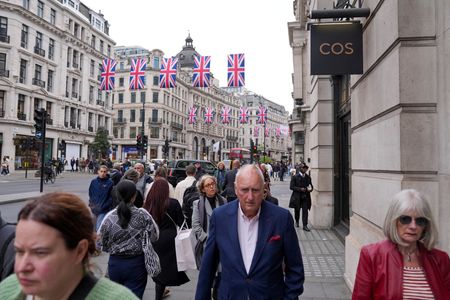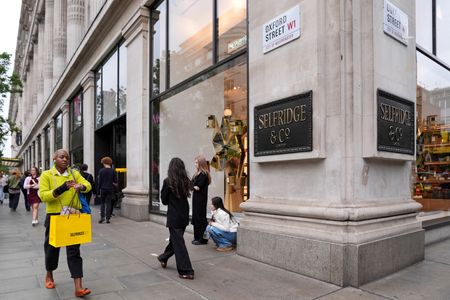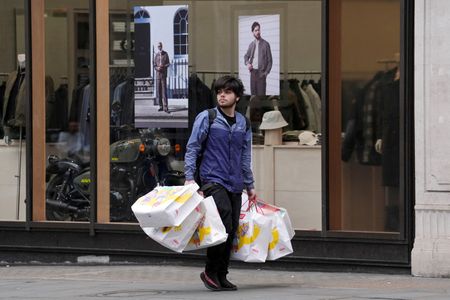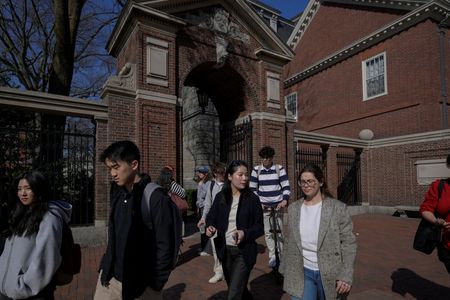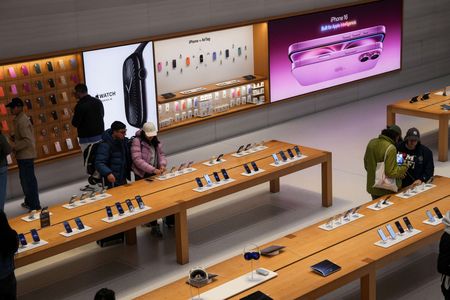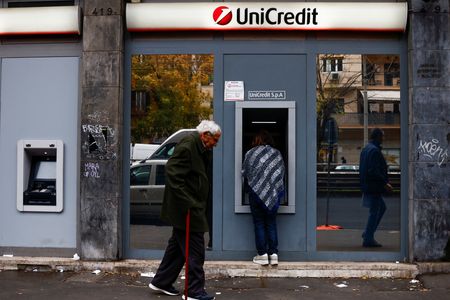By Andy Bruce
MANCHESTER, England (Reuters) -Sunny weather boosted British retail sales in April and households grew cheerier this month, according to figures published on Friday that suggested consumers might be a bright spot in an otherwise drab outlook for the economy.
Retail sales volumes jumped in April by a much stronger than expected 1.2% month-on-month, the Office for National Statistics said on Friday, after a downwardly revised 0.1% increase in March.
A Reuters poll of economists had pointed to growth of 0.2%. The increase marked the fourth back-to-back monthly rise in retail sales – a feat last achieved in 2020, when consumer spending rebounded after the first COVID-19 lockdown.
Outside of the pandemic, it was the longest run of growth since 2004, an ONS official said.
A separate report from market research firm GfK showed Britain’s consumers turned a bit more confident in May, which might reflect the impact of falling interest rates and an easing of global trade tensions.
Taken together, Friday’s figures are likely to bolster expectations that the Bank of England will take its time to lower borrowing costs further.
“With sticky inflation and growth ticking along, it’s getting harder to see interest rates falling quickly,” said Neil Birrell, Chief Investment Officer at Premier Miton Investors, an asset management company.
Food sales jumped by 3.9% on the month, which the ONS linked to Met Office statistics that showed the sunniest April on record. Non-food sales fell by 0.7%.
Compared with April 2024, retail sales volumes were 5.0% higher, the biggest increase since early 2022. However, March’s annual increase was revised down to 1.9% from 2.6% – a reminder of the fickleness of retail sales data.
In recent weeks, electricals retailer Currys and clothing chain Next raised their profit forecasts, the latter also citing warm weather.
Despite their recent strength, retail sales remain 0.6% below their 2019 average.
The British Retail Consortium trade body on Friday said “darker days” lay ahead for retailers, citing billions of pounds of extra costs for employers stemming from higher taxes, an increase in the national minimum wage and a new packaging tax.
(Reporting by Andy Bruce; editing by William Schomberg and Alex Richardson)

